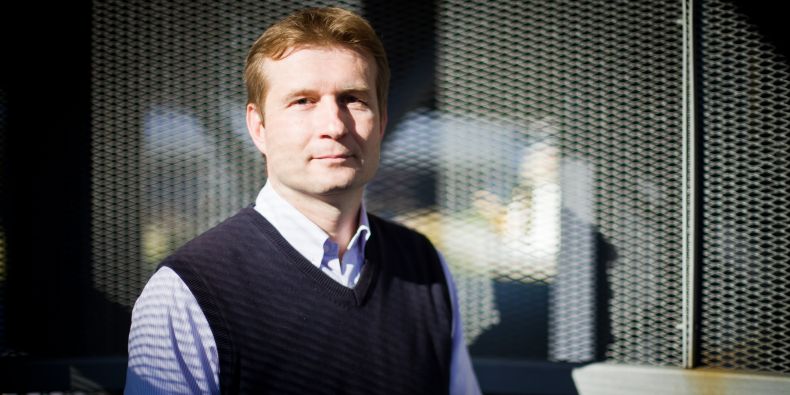Masaryk University researchers are conducting intensive research into agents that could be used to treat various cancers and cardiovascular diseases. They have now received almost one hundred million crowns from EU funds designed to support pre-application research to raise their research to the level where they can start cooperating with pharmaceutical companies.
“In essence, we are looking at three different groups of chemical compounds with interesting biological activity. In the case of one group with potential anticancer effects, we are already working with an innovative pharmaceutical company on further developing the agents. With the second group, which is focused on leukaemia, we are at the stage where we would like to start looking for a research partner in about a year’s time,” says project leader Kamil Paruch of the Department of Chemistry at the MU Faculty of Science about the current level of their research.
Their study of the first group of agents – nuclease inhibitors – is conducted jointly with Lumír Krejčí from the Department of Biology at the MU Faculty of Medicine and the National Centre for Biomolecular Research. Nucleases are enzymes that help repair damaged DNA. Blocking certain nucleases could have a positive effect when treating particular cancers, especially in combination with other anticancer drugs. The UK company Artios Pharma is a partner in this research and has signed a licence agreement with the university that will allow it to use any agents developed during the research.
The second group of agents consists of inhibitors of a specific enzyme, casein kinase, which plays a role in the development of chronic lymphocytic leukaemia, the most common type of leukaemia in adults. “The human body contains more than five hundred different kinases with different functions, but a very similar structure, and it is very hard to develop a molecule that would block the functioning of only one of them. However, we were able to do just that and have recently acquired a patent for our agents, so after further testing, we would like to offer them to commercial partners,” says Paruch.
The next research phase will focus on the effectiveness of these agents as well as their toxicity and overall impact on the organism using animal models. “These studies are so costly and time-consuming, that we could not afford to run then without this grant,” explains Paruch.
The third focus area of this project is forskolin, a natural substance that acts as an activator of certain enzymes and could potentially be used in cardiology, for example, to support cardiac activity. “We recently developed a new and currently the most effective method of synthesising this substance and we are now working on preparing similar molecules that would be more active and work more selectively.”
As a part of their endeavour to obtain the 100 million grant from the Pre-Application Research call for applications, which is part of the EU Operational Programme Research, Development and Education, they received a support grant of half a million crowns from the Smart Accelerator – Assistance programme run by the South Moravian Region. They used the funding to prepare the project application, which included hiring a specialised company to help them. As Paruch says, “This freed us up so that we could focus on the scientific part of the project”.
Other researchers involved in the project are Jakub Švenda from the Department of Chemistry and Lukáš Kubala and Karel Souček from the Department of Experimental Biology at the MU Faculty of Science.
